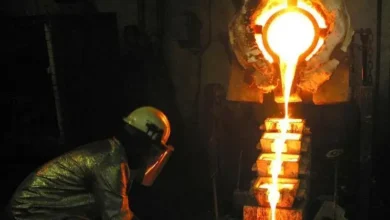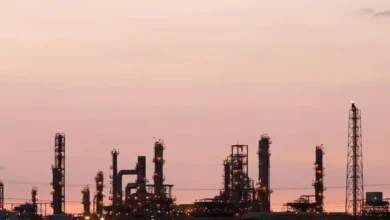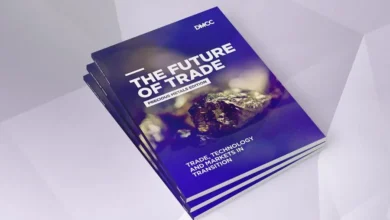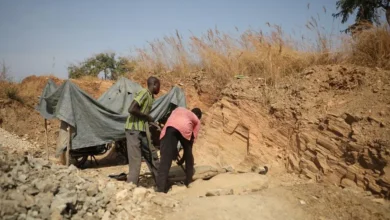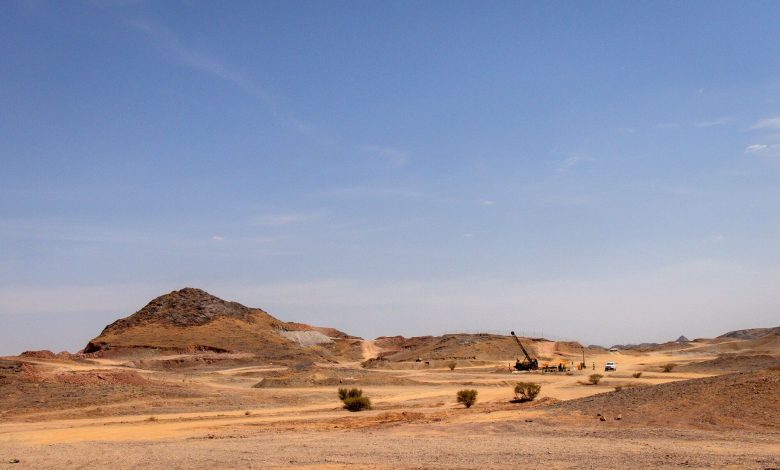
- The kingdom’s emergence will make it even harder for the US and Europe to secure access to commodities.
Welcome to Energy Daily, our guide to the energy and commodities markets powering the global economy. Today, reporter Thomas Biesheuvel looks at Saudi Arabia’s emergence in global mining. To get this newsletter sent straight to your inbox, you can sign up here .
Saudi Arabia’s plunge into the world of mining has caught the industry’s attention as the nation prepares to deploy vast amounts of capital to diversify away from oil and gas.
The kingdom wants to secure access to critical minerals such as copper, nickel, lithium and iron ore, used in equipment from electric vehicle batteries to solar panels. Those will be processed by new refineries and smelters to feed a wider industrial network across the country.
While China has a lock on much of the clean-energy supply chain that currently exists, the emergence of Saudi Arabia will make it even harder for the US, Europe and Japan to secure the battery minerals they want.
Saudia Arabia crashed into the world mining scene in the middle of last year with a $2.6 billion deal to buy 10% of Vale SA’s base metal unit, beating off competition from Qatar and Japan in the process.

It’s looking to buy more stakes in foreign mining operations through Manara Minerals Investment Co., a vehicle established by the kingdom’s powerful sovereign wealth fund and Saudi Arabian Mining Co. In doing so, it wants to secure metal offtake in return.
The model is very similar to the one long deployed by Japan’s commodity trading houses such as Mitsui & Co. Ltd. and Mitsubishi Corp., only Manara is state-backed and able to deploy capital with long-term strategic goals in mind.
That poses a challenge for countries such as the US, which is rushing to catch up. There have been suggestions the nation could piggyback off Saudi ambitions to secure its own supplies — essentially subcontracting out the heavy lifting.
But Saudi Arabia’s focus is to develop its own industry, and it’s becoming clearer that it will work with any country that helps achieve those goals.
The kingdom’s growing importance in the world of critical minerals was noticeable last week at its flagship mining conference in Riyadh.
Previously not on the circuit for most of the industry’s biggest players, the event drew in executives from nearly every top miner, along with about 16,000 other delegates and a large group of US government representatives.
The crowded conference center was at times too busy to cross, with snaking queues for everything from badge collection to the restrooms. One mining executive quipped that he now knew what a gold rush looked like.
—Thomas Biesheuvel, Bloomberg News
Chart of the day
European Gas Prices Widen Gap With Oil
European natural gas is trading at the steepest discount to crude oil since September. Benchmark futures dropped as low as $53 per barrel of oil equivalent this week, about $25 cheaper than Brent. Both commodities have been under pressure recently amid a shaky global economic backdrop. But the widening gap suggests Europe’s demand for gas is particularly subdued, with industry using less fuel than usual and renewables making up a greater share of the power mix.
Today’s top stories
Huge numbers of merchant ships have continued to navigate the southern Red Sea since warnings by Western navies to stay away from the crucial trade route to avoid attack by Yemen’s Houthi militants.
Texas faces another power grid test Tuesday after surviving record winter demand as freezing weather strains electricity systems across North America.
Canada’s First Quantum Minerals Ltd. will cut spending, pause its dividend and put smaller mines up for sale in a sweeping effort to free up cash after the company was ordered to shutter a $10 billion copper operation in Panama.
Shell Plc agreed to sell its Nigerian onshore oil business to a consortium of local companies for more than $1.3 billion.
China’s record-setting copper output is threatened by a plunge in the fees that smelters charge miners to turn ore into refined metal.
Best of the rest
- A huge underground battery is coming to a tiny Utah town. The New York Times reports on the project, which is part of a plan to create and store hydrogen.
- Texas utilities have been on a renewable-energy building spree since a major winter storm hit in 2021. The Washington Post looks at how that puts the state’s grid on better footing this time around.
- Why isn’t more energy being produced from tidal power? BBC podcast The Climate Question explores the issue.
— With assistance from Elena Mazneva

